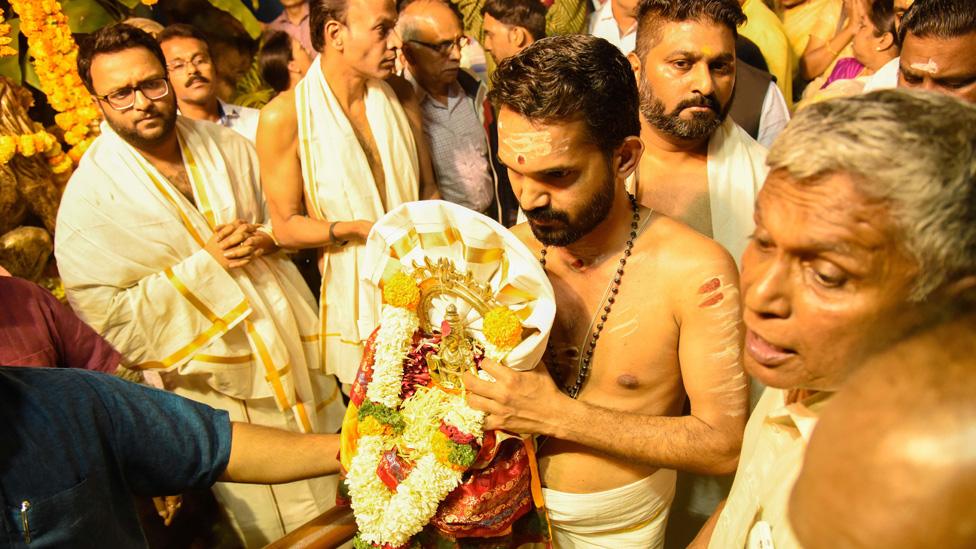Sabarimala: India activist held for 'explicit' thigh photo
- Published
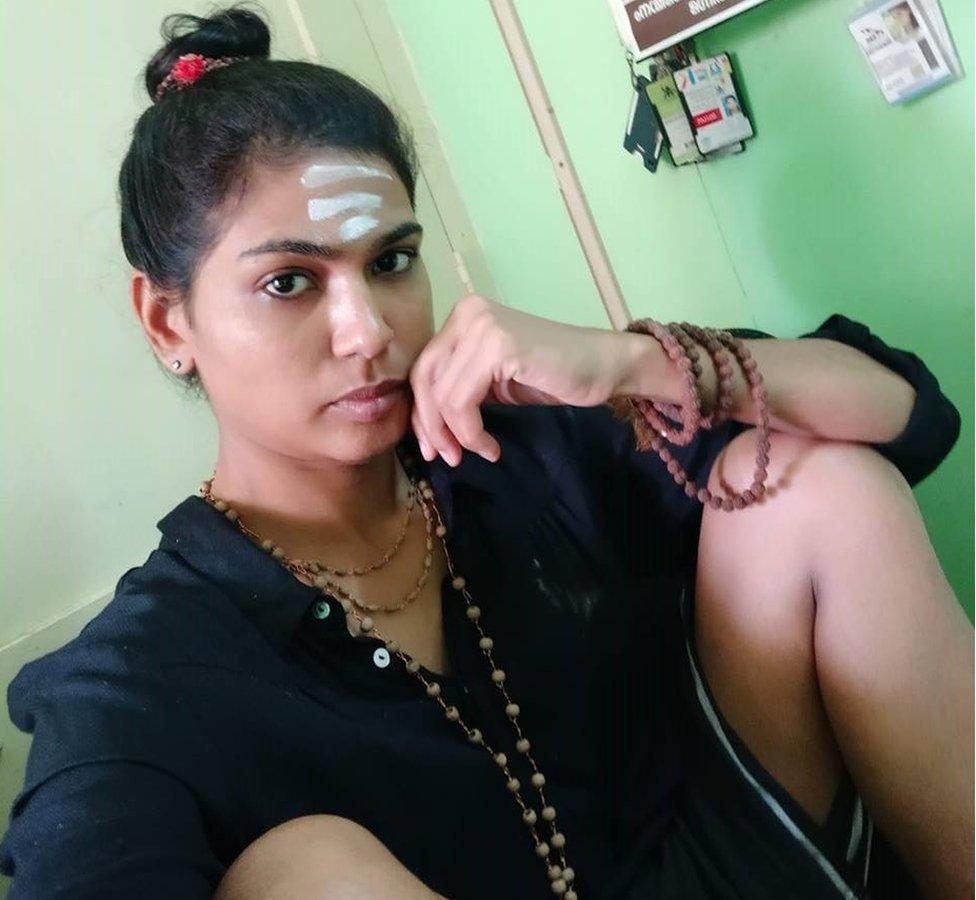
The selfie Rehana Fathima posted on Facebook
An Indian woman who made an unsuccessful attempt last month to enter one of Hinduism's holiest temples has been arrested and charges against her include "exposing her thigh" in a photograph she posted on Facebook while dressed as a pilgrim.
Rehana Fathima, 32-year-old telecom technician, activist and model, was stopped by protesters from entering the Sabarimala shrine which has historically been closed to all women of "menstruating age".
Hinduism regards menstruating women as unclean and bars them from participating in religious rituals. The shrine management says the ban on women is also because the temple deity Lord Ayyappa was a bachelor.
In September, India's Supreme Court overturned the ban, allowing women of all ages to visit the temple.
In October, Ms Fathima and a female journalist, protected by more than 100 policemen, had trekked to the hilltop shrine and managed to reach the main temple premises. But they had to return after a stand-off with devotees metres from the temple sanctum.
And two months after the court order, a woman has yet to enter the shrine.
Ms Fathima was arrested at her office in the city of Cochin on Tuesday, her friend and feminist activist Arathy SA told the BBC. A magistrate sent her to prison for 14 days to allow police to investigate the charges against her, she added. Ms Fathima is also accused of hurting religious sentiments.
Her employer, the government-run telecom company BSNL, has suspended her until investigations are complete.
In October, Ms Fathima posted a selfie on Facebook which showed her dressed in black (the colour most Lord Ayyappa devotees wear), her forehead smeared with sandalwood paste in the Hindu tradition, and her knees pulled up in front to mimic the classic Ayyappa pose.
Police registered a case against her after complaints that her photograph was "sexually explicit" and "wounded the religious feelings of Lord Ayyappa's devotees".
Earlier this month, she filed a petition in the lower court, requesting the magistrate to stop the police from arresting her. But the court rejected her plea, paving the way for her arrest.
On Thursday, Ms Fathima's family said they had applied for bail and that her plea would be taken up on Friday.
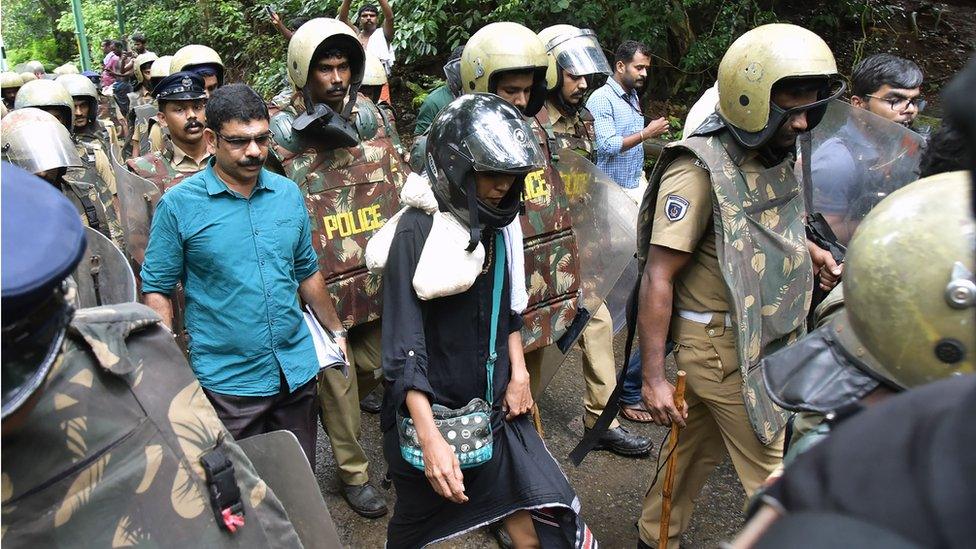
Fathima trekked to the hilltop shrine, protected by more than 100 policemen, but had to return after a stand-off with devotees near the temple sanctum
Her friend Arathy told the BBC that Ms Fathima did not intend to hurt anyone's religious sentiments or do anything that was sexual or offensive.
"What about the men who go to Sabarimala bare-chested or expose their thighs? How come that's not outrageous?" she asked.
Ms Fathima has also angered conservative Hindu groups because she's a Muslim, even though she says she is a devotee of Lord Ayyappa.
Arathy says when Ms Fathima put up the photograph on Facebook, she received many abusive comments and even rape threats.
"It's those people who are creating religious disharmony. Sabarimala allows all men, whatever their faith. It's only women who are not allowed into the shrine," she says.
The opening of the temple to women has divided opinion in Kerala as well as the rest of India.
Feminist activists say barring women from the shrine is patriarchal, while those in favour of keeping women out say they are protecting their deity in accordance with the traditional belief that women of a menstruating age are a threat to his celibacy.
Ever since the ban was repealed, tens of thousands of protesters, including many women, have blocked roads, attacked female devotees and vandalised property to prevent women from entering the shrine.
Thousands of people have been arrested for protesting and although most of them have been since freed, some do remain in jail.
- Published17 November 2018
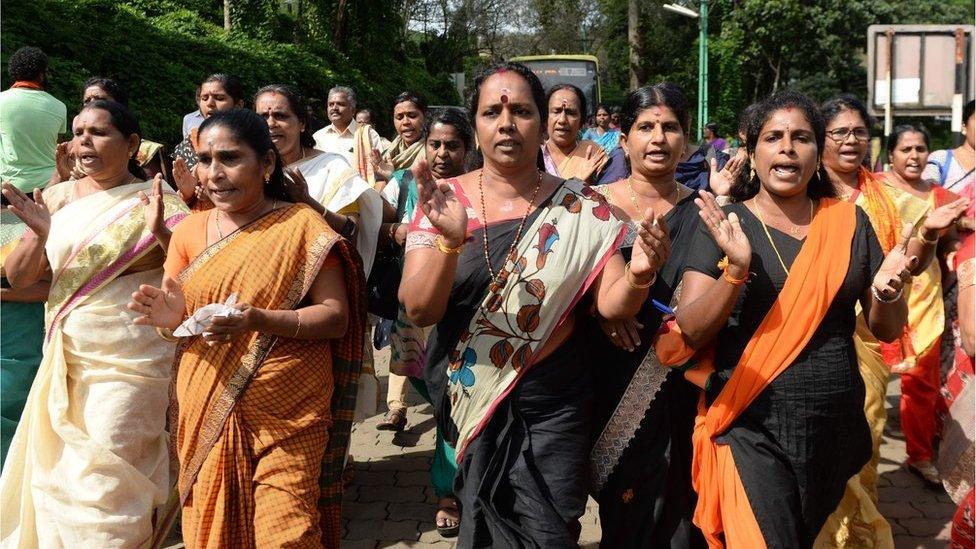
- Published17 October 2018
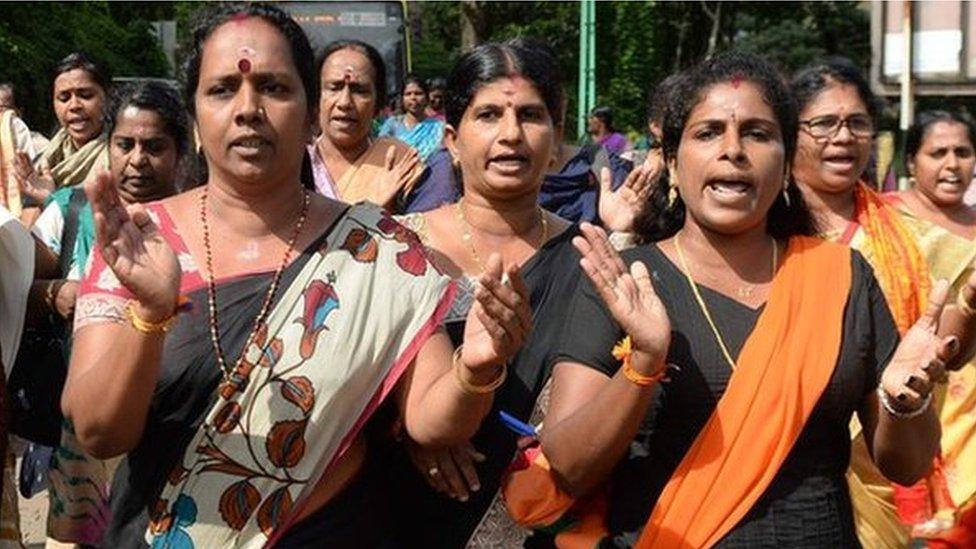
- Published28 September 2018
